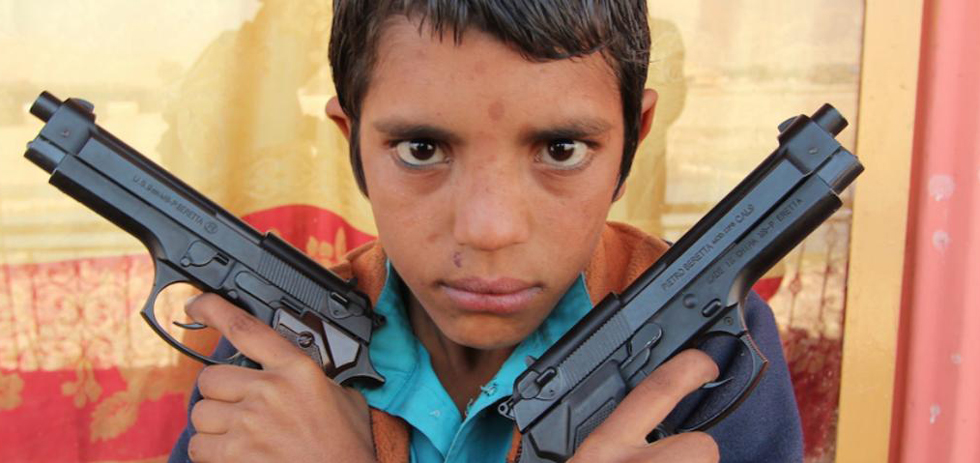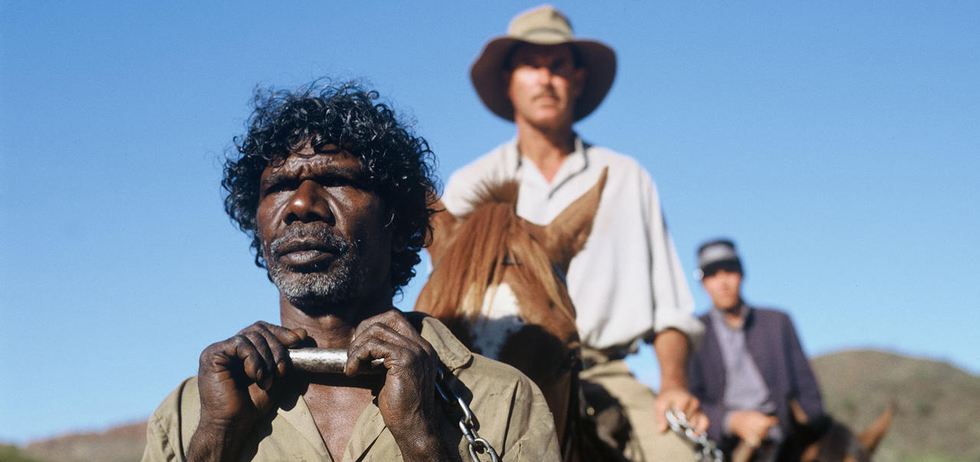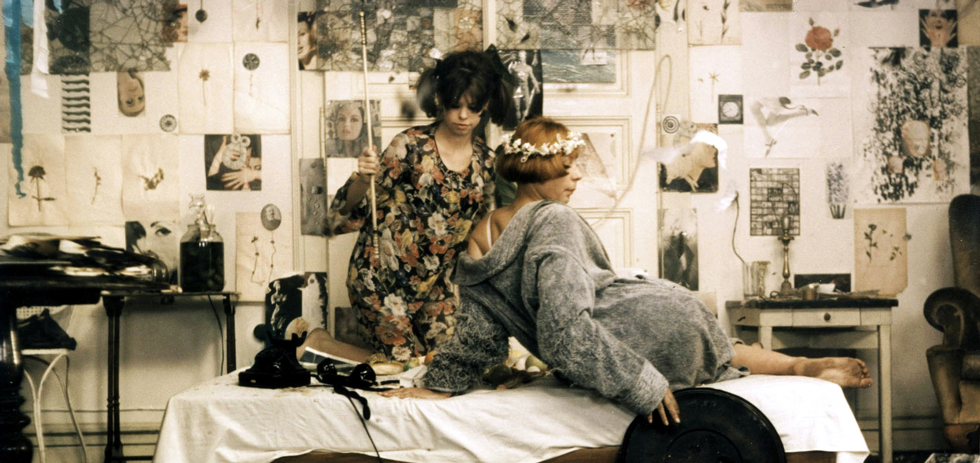Melbourne International Film Festival is always a gargantuan offering in the Australian film festival calendar. With a record-breaking 370 titles screening this year, the festival promises to showcase a huge range of films, from the cream of world cinema’s crop – the bevy of Cannes titles added last month is a good starting point – to their decades-spanning Psychedelic cinema retrospective series.
The festival opens on 30 July with the world premiere of Paul Cox’s latest feature, the semi-autobiographical Force of Destiny, which stars David Wenham as a sculptor who finds love just as he’s diagnosed with cancer.1 One of the most exciting reveals of the MIFF program launch earlier this week was the closing night film, with Noah Baumbach’s Mistress America screening on the night of the 15th of August. That film, the third collaboration with his partner Greta Gerwig (and the second that she has co-wrote), is a callback to the screwball farces of the ’40s, with a solid helping of Whit Stillman-esque characters.2 The other major event film is one that garnered a rave review from us when it closed the Sydney Film Festival in June, Neil Armfield’s Holding the Man, a moving adaptation of Timothy Conigrave’s highly influential memoir of the same name.
MIFF’s Accent on Asia focus makes a solid return this year with heavy hitters including Hou Hsaio-hsien’s The Assassin, Apitchatpong Weerasethakul’s Cemetery of Splendour, Takeshi Kitano’s Ryuzo and His Seven Henchmen, Lav Diaz’ five-and-a-half hour From What Is Before, Hong Sang-soo’s Hill of Freedom, Jia Zhangke’s Mountains May Depart, and the 2015 Cannes Un Certain Regard award winner, Kiyoshi Kurosawa’s Journey to the Shore. Beyond that, the divisive Naomi Kawase’s An will screen at the festival, as will Park Jung-bum’s three-hour Alive. In a fairly dense selection, MIFF’s Accent on Asia also includes flicks with less hype, including Sabu’s Chasuke’s Journey, Xin Yukun’s The Coffin in the Mountain, the surrealistic Flapping in the Middle of Nowhere from Diep Hoang Nguyen, Peter Ho-sun Chan’s Dearest, South Korean newcomer Jun-hee Han’s Coin Locker Girl, Luo Li’s Li Wen at East Lake, and Partho Sen-Gupta’s Sunrise. Rounding off the Asia selection is Chaitanya Tamhane’s Court, which we gave a Highly Recommended review at Sydney Film Festival.

In terms of local focus, MIFF’s Australian Showcase fits in some of the better Australian features from Sydney Film Festival – The Daughter, Sherpa and Tyke Elephant Outlaw among them – as well as some intriguing world premieres, which range from comedian Lawrence Leung’s Sucker to MIFF’s Accelerator alumnus Grant Scicluna’s Downriver. Understandably, there’s one Australian film that, for us here at 4:3, seems to tower above all of the others in this section of the program, and that’s George Gittoes’ Snow Monkey, a look at childrens’ gangs in Afghanistan, which serves as a continuation of all of his documentary work over the last decade. We spoke to Gittoes last July, when he was still in the process of editing Snow Monkey, where the director framed it as his most ambitious and his strongest work to date 3.
The international features on offer, outside of those picked up from Cannes and their Accent on Asia section, include the unique Hindi film Margarita, with a Straw (whose co-director Nilesh Manikar we spoke to at Frameline last month), Alex Ross Perry’s Queen of Earth, SFF favourites Aferim! and Tehran Taxi, the strange sex comedy The Overnight, and a brutal Estonian film about WWII genocide and deportation, In the Crosswind.
Likewise, there are a huge number of compelling documentaries from around the world screening at the festival this year, in an array of sections including Culinary Cinema, True Crime and Sports Documentaries. Their list ranges from Crystal Moselle’s Sundance Jury Prize-winner The Wolfpack to the bizarre looking Belluscone. A Sicilian Story and the found footage documentary A German Youth. Not content to have one Lav Diaz film at the festival, MIFF also presents his relatively short (only two-and-a-half hours) documentary Storm Children – Book One. Some of the best documentaries we’ve reviewed are also making an appearance at MIFF, including Welcome to Leith, The Look of Silence and My Love, Don’t Cross That River. Of the individual sections, early highlights look to be City of Gold from the foodie films, Prophet’s Prey from True Crime, and Kon Ichikawa’s three-hour Tokyo Olympiad from the sports showcase.

The music-obsessed Backbeat selection features a wide array of films from the Roland TR-808 drum machine documentary 808, the survey of sound in Berlin in B-Movie: Lust and Sound in West Berlin, the punk study of Danny Says, and the pub-rock Icon Wiko Johnson in The Ecstasy of Wilko Johnson. Legendary soul singer Mavis Staples is covered in Mavis! while Salad Days looks at the straight edge, and constantly confronting Washington DC punk scene led by figures including Minor Threat and Bad Brains.
MIFF’s Night Shift program, their equivalent to the Sydney Film Festival favourite Freak Me Out, is chock-full of certain crowd-pleasers, from SFF favourites Deathgasm and The Invitation to some highly anticipated offerings from Gaspar Noé (Love) and Takashi Miike (Yakuza Apocalypse). It’s also a joy to see MIFF program Adam Wingard’s follow-up to You’re Next, the also-Simon Barrett-penned The Guest, which finally gets an Australian premiere, almost a year after it hit VOD in the United States.

Three guests will be attending the festival to present retrospective screenings of their filmographies. Sebastian Silva, whose latest, the polarising Nasty Baby is also screening at MIFF, will present six of his earlier films, including his two recent (and bizarre) Michael Cera collaborations, Magic Magic and Crystal Fairy and the Magical Cactus. Josh and Benny Safdie, the New York-based fraternal filmmaking duo, will be presenting five of their films, including their latest, the stunningly raw addiction film Heaven Knows What.
Australian cinematic icon, David Gulpilil is also the subject of a retrospective this year – featuring an extensive list of films that actor has starred in. From Nicolas Roeg’s 1971 Walkabout, Henri Safran’s 1976 Storm Boy, Rolf de Heer’s The Tracker, Ten Canoes, Charlie’s Country, and Dark Age, the Phillip Noyce-directed and Christopher Doyle-shot Rabbit-Proof Fence, to the latest Gulpilil film, Another Country – which has its world premiere at MIFF.
These filmmaker selections are just one portion of what is a carefully curated and in-depth retrospective season for MIFF 2015. Leading the Masters & Restorations section is Kinji Fukasaku’s Yakuza-driven Battles Without Honour and Humanity, alongside the intimate study of William S. Burroughs in Howard Brookner’s Burroughs: The Movie. Continuing its festival run is the Fassbinder-focused and Christian Braad Thomsen directed documentary Fassbinder – To Love Without Demands, while the late Albert Maysles’ 1975 Grey Gardens is screening to balance out the restoration side of the selection. On the other side, the personality-driven My Life Directed By Nicolas Winding Refn and Listen to Me Marlon top off the masters end.

The most impressive side of retrospectives for this year is arguably in the phenomenal Psychedelic! portion, which navigates a cinematic history of visually arresting and explosive pieces of cinema. At the top of the line-up is the Czech New Wave masterpiece, Vera Chytilová’s Daisies, quickly followed by a midnight screening of Alejandro Jodorowsky’s astounding The Holy Mountain. On the more recent side of things sits Gaspar Noé’s Enter the Void, and Ken Jacobs’ Seeking the Monkey King. Also featured is Hungary-based director and Palme d’Or winner Marcell Jankovics’ Fehérlófia, the Jack Nicholson-scripted Head, and the deeply experimental La Prisonniere by Henri-Georges Clouzot. The program features some deeper cuts including Australian director Bert Deling’s 1973 Dalmas, and Albie Thoms’ Marinetti. Bringing it all to a close, Carmelo Bené’s King Herod tale Salome, Pierre Clémenti’s experimental Visa De Censure nº X, and the Beatles’ foray into animation with Yellow Submarine.
Not content to only screen psychedelic content, MIFF also promises two very different modes of viewing, with the Austrian/Netherlands co-production of Vertical Cinema short films to be screened on a vertically hung CinemaScope screen, as well as a showcase of projections on the fulldome of the Melbourne Planetarium.
Stay tuned for more pre-MIFF coverage from us here at 4:3, with our Staff Picks roundtable releasing next week. Non-MIFF members can purchase tickets to the festival starting tomorrow (July 10th) over at the MIFF website.
